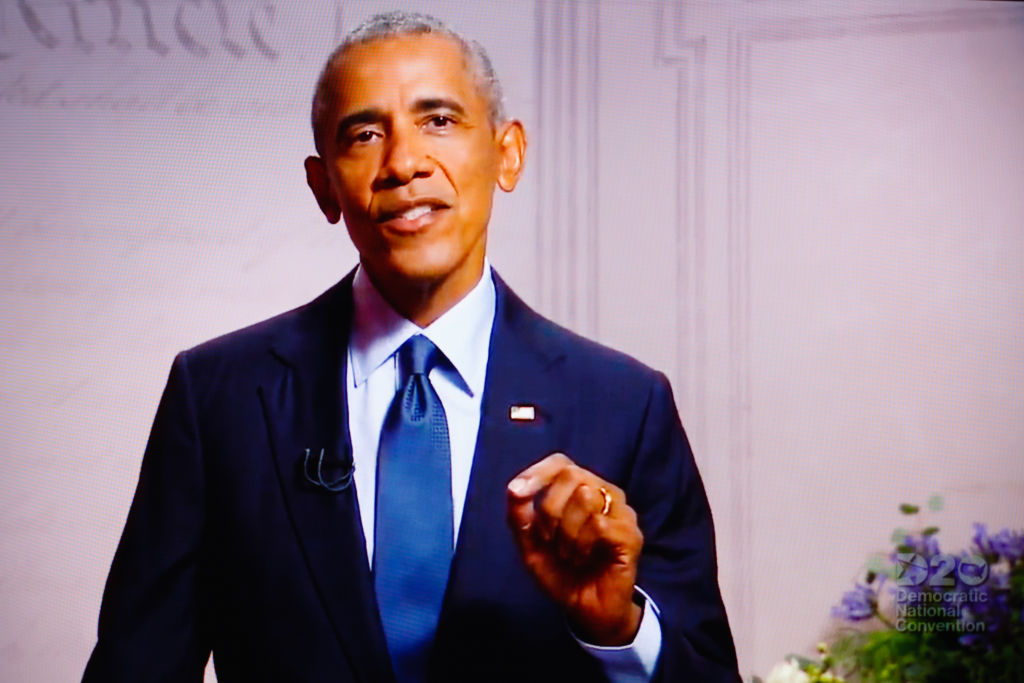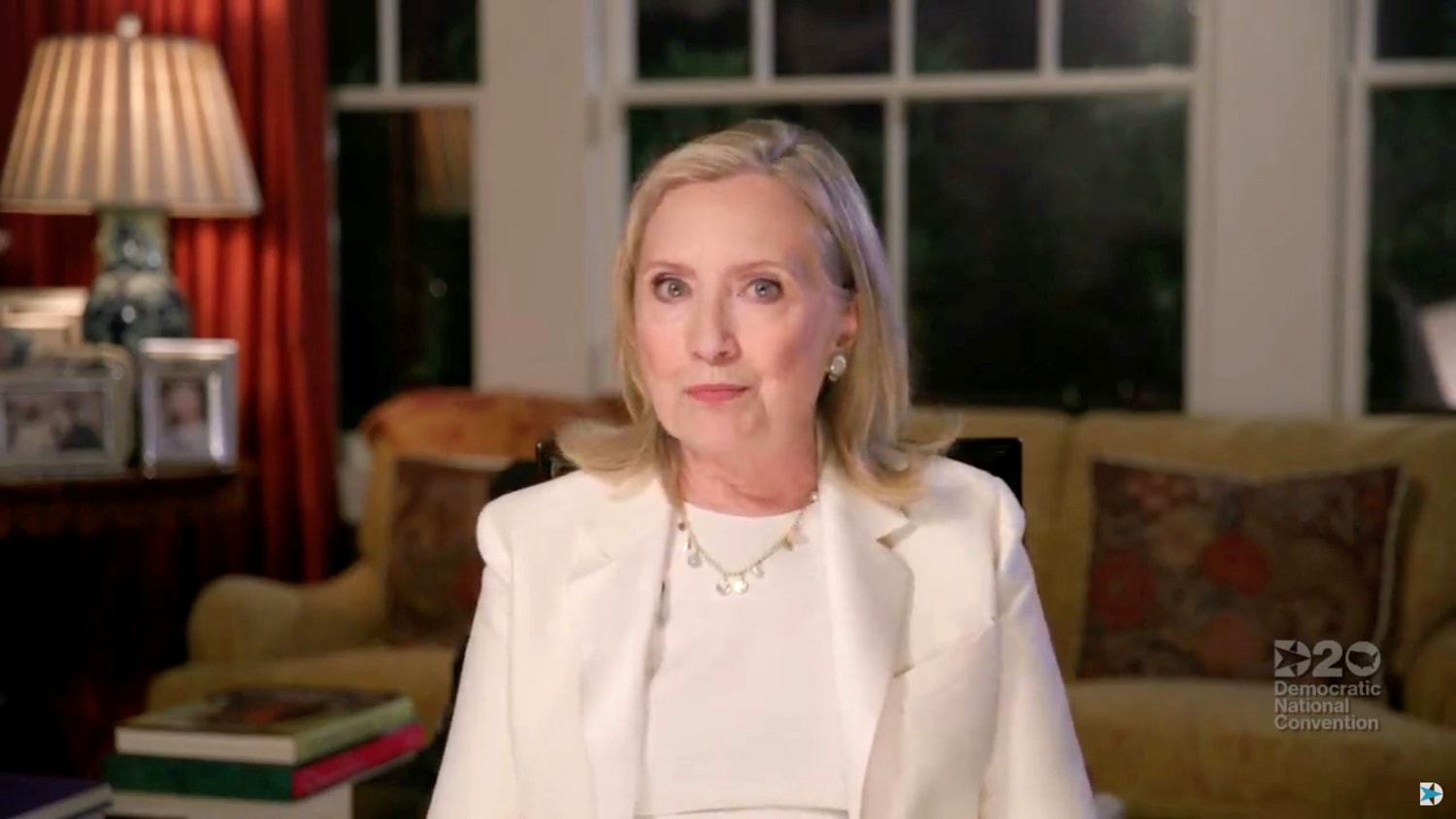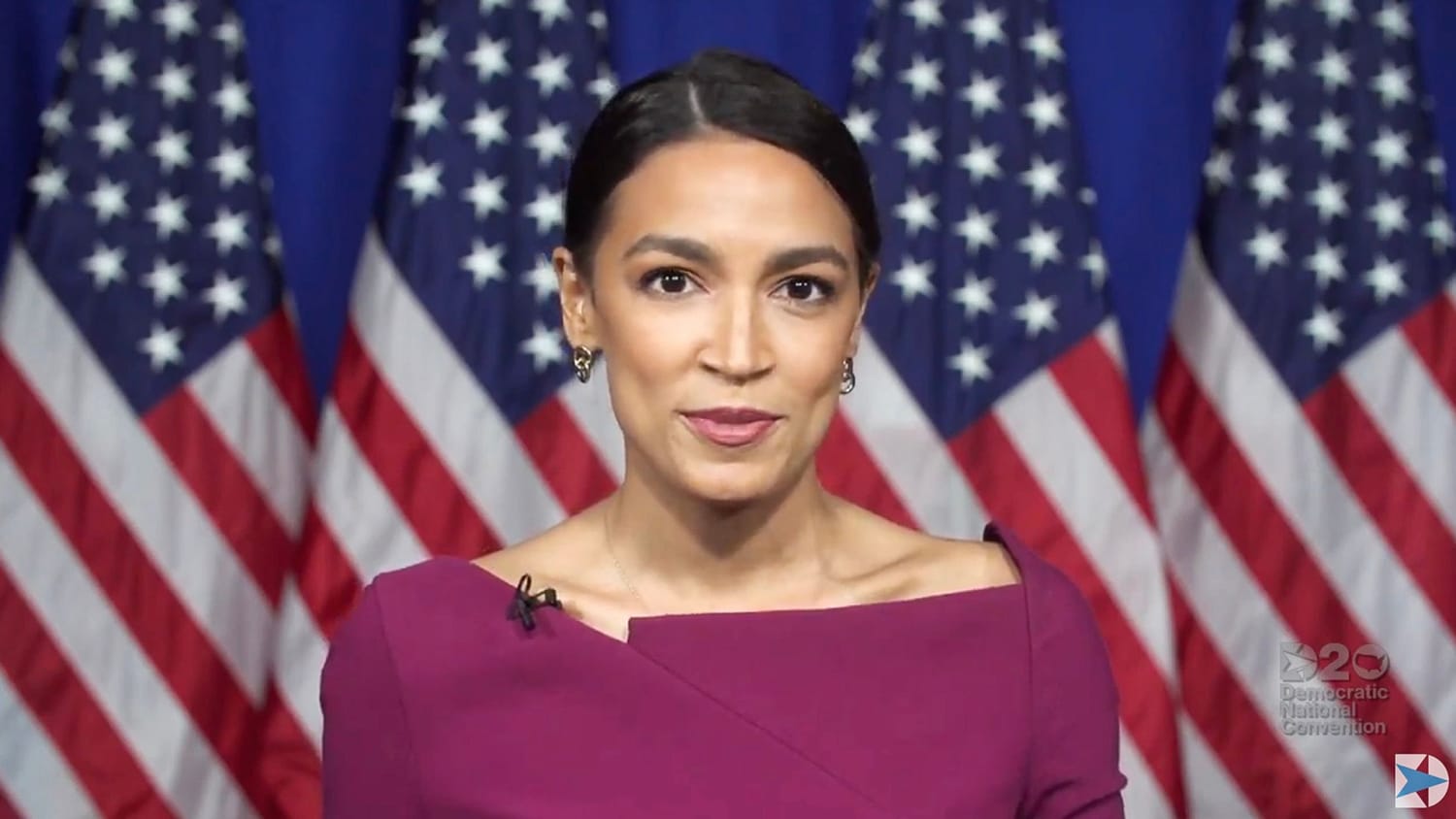
Last night, Joe Biden capped a Democratic convention like no other by underscoring the themes that dominated the gathering from the beginning: empathy, national unity, racial justice, and President Donald Trump’s failures in managing the coronavirus.
Now the question is whether those messages, which largely eclipsed a direct economic appeal to struggling families, can protect Biden’s consistent lead in national polls against the ideological counterattack from the GOP that’s certain to reach a new peak at next week’s Republican convention.
Biden projected passion, energy, and solidity in remarks that more closely resembled a grave presidential address from the Oval Office than the typical raucous convention speech. In his manner as much as his words, Biden offered a contrast to Trump’s belligerent volatility—and to the GOP’s portrayal of him as in decline both physically and mentally.
Biden projected passion, energy, and solidity in remarks that more closely resembled a grave presidential address from the Oval Office than the typical raucous convention speech. In his manner as much as his words, Biden offered a contrast to Trump’s belligerent volatility—and to the GOP’s portrayal of him as in decline both physically and mentally.
He devoted much more energy to indicting Trump on the outbreak and encouraging national unity than he did questioning the president’s commitment to the middle class or arguing that he himself had better plans to bolster it.
Alex Conant, a GOP public-affairs consultant and former communications director for Marco Rubio, says the Democrats’ choice to downplay discussion of their plans through the week reflected their determination to keep the focus on Trump. At the end of the day, they want this to be a referendum on Trump’s four years in office, not a choice between their vision of the future and Trump’s.”
The risk for Democrats, Conant said, is that this approach leaves more room for Trump to define Biden’s agenda. “If I were Trump, I’d spend all next week and hundreds of millions of dollars in September telling you Biden is going to give you single-payer [health care], higher taxes, and the Green New Deal, which would ruin any chance for the economy to recover,” Conant said. “And force Democrats to have that economic debate.”
Even if Biden emerges from the convention with a boost in the polls, his choice to focus less on economic appeals and more on sweeping themes and social issues, particularly racial justice, raises some of the same questions that surfaced after the Democrats’ last national meeting. Though Hillary Clinton’s 2016 convention drew strong reviews, it too emphasized the party’s embrace of diversity, the breadth of her coalition, and Trump’s deficiencies of character without delivering a clearly delineated economic agenda for working families. Those choices faced pointed second-guessing after Election Day, when Trump’s huge margins among non-college-educated white voters allowed him to dislodge the Rust Belt battlegrounds of Michigan, Pennsylvania, and Wisconsin from the Democrats’ “blue wall” and claim his narrow victory.
Ahead of Biden’s speech last night, the longtime Democratic strategist James Carville, the campaign manager for Bill Clinton’s successful 1992 race, feared that Democrats might be heading down a similar path again this week. He gave high marks to the convention’s personal introduction of Biden and its outreach to young people, but he worried that the event wasn’t following the formula Democrats used to win the House in 2018: Minimize discussion of Trump and emphasize bread-and-butter economic concerns, such as defending the Affordable Care Act and its protections for Americans with preexisting health conditions.
As Elaine Kamarck, a longtime Democratic aide who is now the director of the Center for Effective Public Management at the Brookings Institution, wrote this morning, “Given the choice between policy and character, Democrats focused on character and the contrast between Joe Biden as a person and Donald Trump as a person.”
“Had Donald Trump been a normal Republican president, we would have heard a great deal more about the Republican tax bill, Trump’s single largest domestic accomplishment,” she explained. “But even though it is a huge contributor to the income inequality that most Democrats have railed against for many years, the tax bill was barely mentioned.”
The longest stretch of policy discussion, in an extended sequence on Wednesday, focused on gun control, climate change, citizenship for undocumented immigrants, and women’s rights, not jobs, wages, or retirement. (One caveat: The climate discussion focused on the possibility of creating green jobs.)
One senior Biden adviser, who spoke on the condition of anonymity in order to talk frankly, told me that the issues highlighted during that sequence reflect the priorities of the party’s modern base, as the campaign sees it: young people (guns and climate), suburban women (guns and women’s rights), and people of color (racial justice and immigration).
Yet unless Biden can win across a wide range of Sun Belt states, he’s unlikely to reach 270 Electoral College votes without improving at least somewhat among working-class white voters in the key Rust Belt states of Pennsylvania, Michigan, and Wisconsin. And analysts have long observed that many older Latino and African American voters in particular are more motivated to turn out to the polls by concrete plans to improve their life than by broad promises of confronting discrimination.

Biden certainly has more plans on every conceivable issue than does Trump, who has been almost entirely incapable of explaining what he might do in a second term. And polls over the next few days are likely to show Biden emerging from his convention in a stronger position than any challenger to an incumbent president since Bill Clinton in 1992. With the warm endorsements offered by public figures who span the ideological spectrum, the week also demonstrated Biden’s potential to construct an unusually expansive coalition against Trump—what some have seen as the modern equivalent of the popular front against fascism during the 1930s.
Even most Republicans agree that Trump, by this point, has almost no realistic pathway to winning the popular vote. But even most Democrats agree that he might still squeeze out an Electoral College majority by maximizing margins and turnout among his core group of older, rural, non-college-educated white voters in a few closely balanced states. If he does, Democrats may again rue the choice not to direct a more targeted economic appeal at the voters Trump is relying on most.







/cdn.vox-cdn.com/uploads/chorus_image/image/67006259/1253515082.jpg.0.jpg)
/cdn.vox-cdn.com/uploads/chorus_image/image/67232474/GettyImages_1267249671.0.jpg)





/cdn.vox-cdn.com/uploads/chorus_image/image/67218186/AP_20231068243361.0.jpg)


